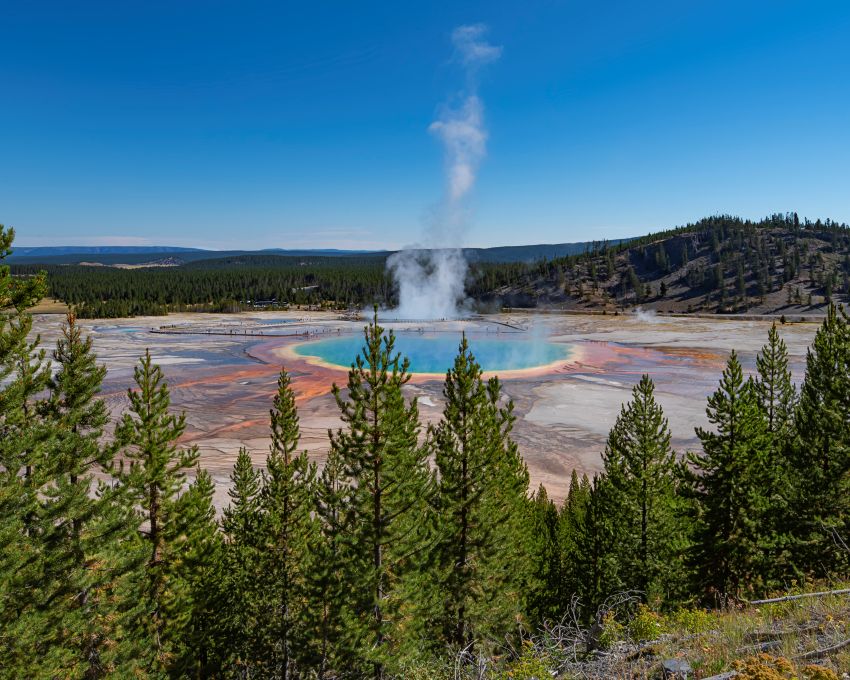Heat wave turns climate crisis into a hot topic for EU - Opinion - Chinadaily.com.cn

A group of middle-school students first waved at me and then stopped me late on Monday afternoon while I was taking a walk in the Parc du Cinquantenaire in Brussels. They were working on a school project, seeking people's views on climate change, especially on the climate actions taken by the European Union.
To be frank, they looked like a bunch of naughty teenagers, but I took their questions seriously and was impressed by them after we finished the conversation.
One of the first mass demonstrations I witnessed after assuming my job in Brussels in November 2018 was a climate march which concluded in the very same park. The enthusiasm of Europeans of all ages in combating climate change is remarkable, not seen in other parts of the world that I've visited.
The 2019 European Parliament elections were held when the general public in the EU regarded climate change as the top priority. It was two years after the United States, during President Donald Trump's first term, withdrew from the Paris Agreement which Washington had signed only in 2016. Trump pulled the US out of the Paris climate accord once again earlier this year after his predecessor Joe Biden rejoined it in 2021.
While appreciating the passion shown by the students, I told them that I did feel that the overall momentum in the EU on climate action has weakened over the past two years. Part of the reason is the Russia-Ukraine conflict which broke out in February 2022. The conflict has replaced climate change as many EU leaders' top priority, reducing the EU's contributions to the global fight against the climate crisis.
The other reason is former European Central Bank president Mario Draghi's report on the EU's competitiveness, which was issued last September. It has prompted many EU politicians to make catching up with the US and China in technology and industry their top priority.
The landmark European Green Deal is no longer talked about as much these days since the departure in 2023 of the European Commission first executive vice-president, Frans Timmermans, who was in charge of the European Green Deal and climate action.
I interviewed Timmermans in 2021. He told me that he was keen to see the EU and China cooperatively fight climate change despite the worsening global geopolitical climate in those days. Indeed, China's Emissions Trading System was launched in 2021 with the help of the EU.
As many EU member states have been hit by a severe heat wave over the past days, few EU leaders came out to link them to climate change, something which they probably would have done a few years ago.
In the 2024 European Parliament elections, the cost of living, economic issues and international events became the top reasons for people to vote.
While setting 2040 as the target for reducing greenhouse gas emissions by 90 percent from the 1990 levels, the European Commission said on Wednesday that it intends to reach the target in a "more pragmatic and flexible" manner by allowing carbon credits from non-EU countries to account for up to 3 percent of the overall 90 percent emissions' reduction.
The European Commission, quoting a survey by Eurobarometer which is funded by EU institutions, said on Monday that 85 percent of Europeans are worried about climate change. I am glad that EU leaders no longer talk the same kind of nonsense about climate change, including asserting that the EU will cooperate only with like-minded countries and countries with shared values to combat climate change.
Fighting climate change is a common human endeavor that transcends borders and ideological differences, as demonstrated by the heat wave in Europe.
While China learned so much from the EU's "emissions trading system", today it can contribute a great deal to the EU's efforts to realize carbon neutrality by 2050. China's rapid advancement in technology and green industries, from solar and wind power to electric vehicles and batteries, is unprecedented. Also, there is no such thing as "overcapacity" in the green industry; instead, not enough climate action tools are available to meet different countries' demand as they intensify their climate action.

The author is chief of China Daily EU Bureau based in Brussels.










